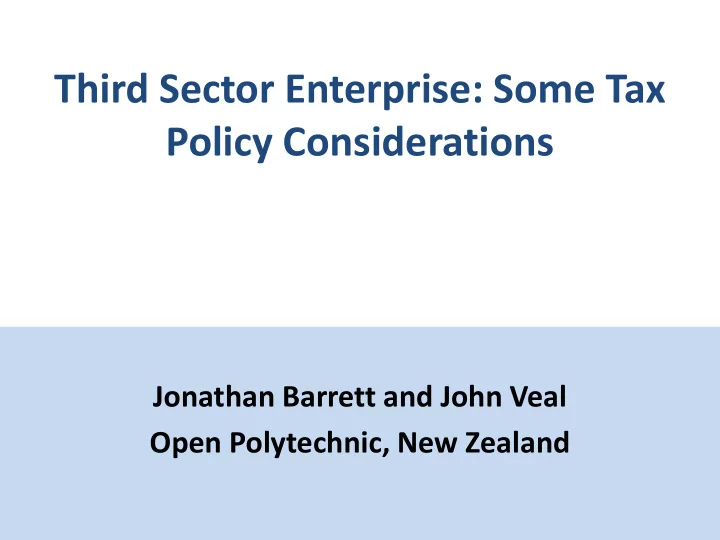

Third Sector Enterprise: Some Tax Policy Considerations Jonathan Barrett and John Veal Open Polytechnic, New Zealand
Overview • Example: breakfast cereal market • Traditional grounds for privileging charities • Third sector enterprise and convergence • Equity • Outcomes • Concluding questions
Example: One market, three firms • Hubbard’s • Kellogg’s • Sanitarium
Comparison Criterion Sanitarium Others Registered charity Yes (business carried No on by SDACNZ) Source of funds Donations/ tithes, Equity, debt, grants, debt, retained earnings distributions by charitable firm Taxable (income tax) No Yes UBIT/UCAT No No Deductions No Yes Can income tax be Yes Yes zero?
Why privilege charities/charitable firms? • Role as quasi-government agency • Advocacy for disempowered • Problem of income measurement • Compensation for inability to raise capital • Responsiveness/effectiveness • Correcting market failure
Convergence: third sector enterprise (TSE) • Charitable trade/CSR • Social enterprise: market solutions to social problems • TSE hybrids – some distribution to investors
Equity • Are TSEs similarly situated to charities from a tax perspective? • Can merit goods and services be accommodated?
How much do we care about outcomes? • Are TSEs similarly situated to charities morally ? • What if TSEs can deliver outcomes more efficiently? • Which outcomes matter?
Concluding questions • Does convergence make broad trade/charity distinctions obsolete? • Is the specific residual distribution distinction obsolete? • Do we care more about outcomes or status?
Recommend
More recommend